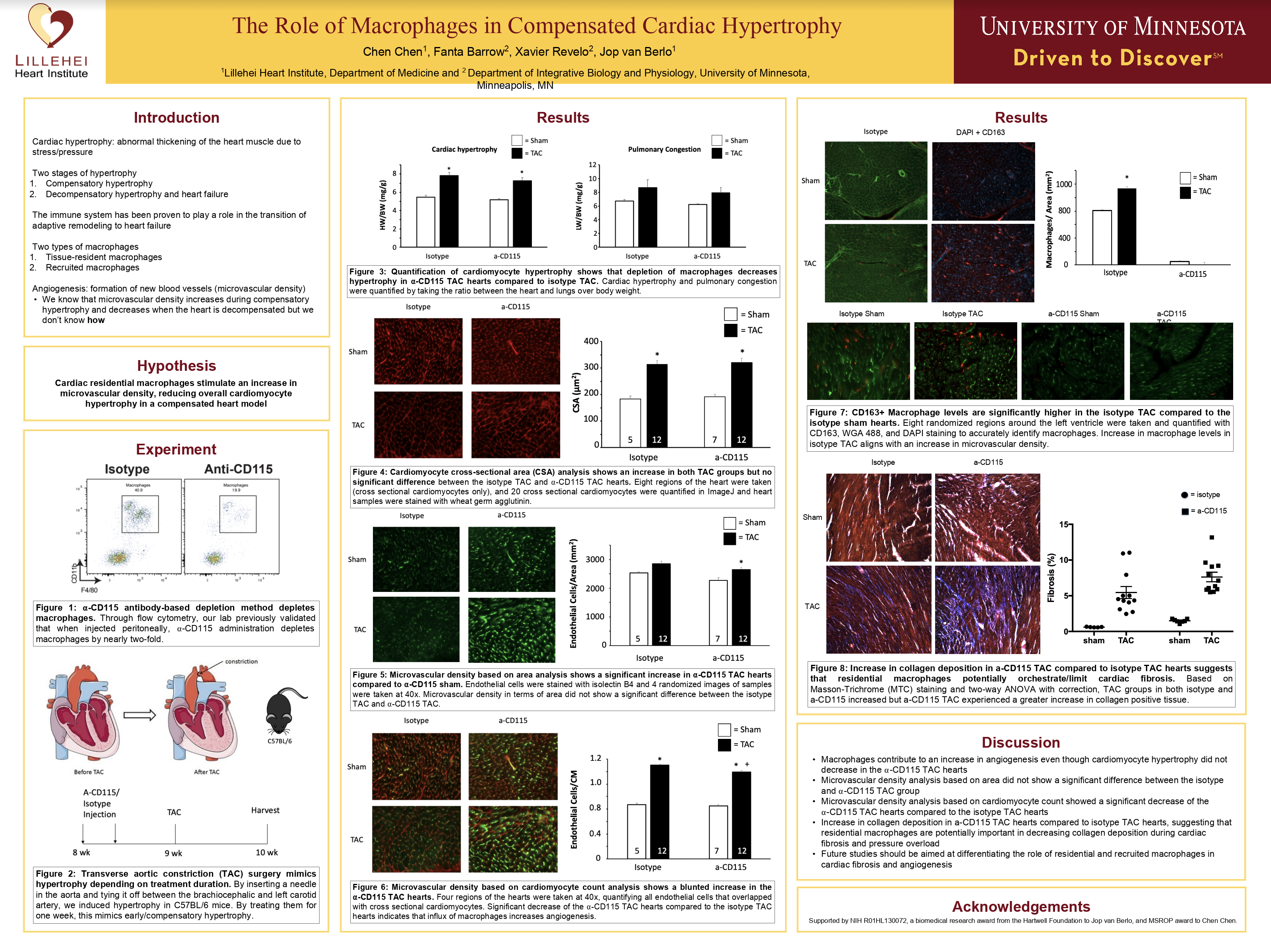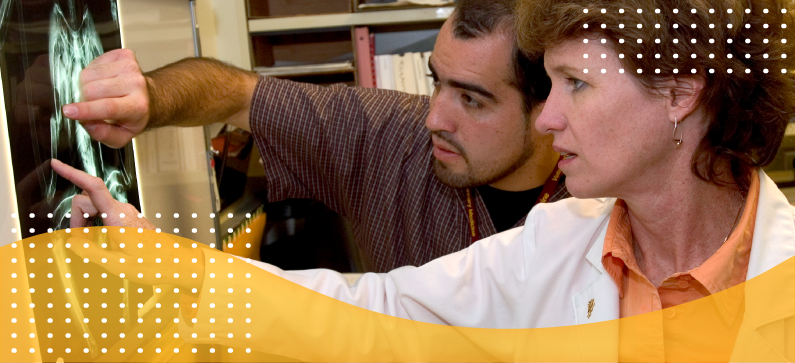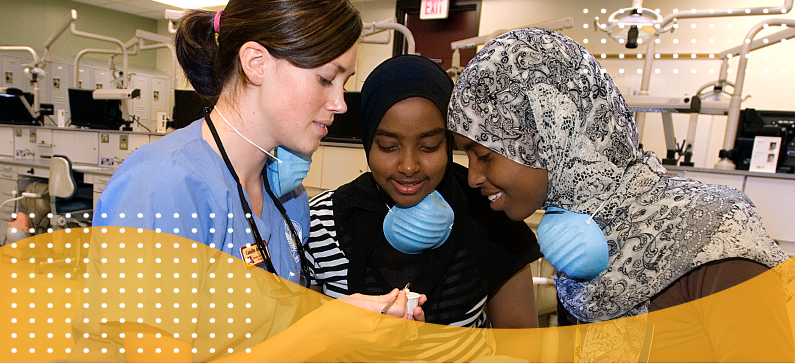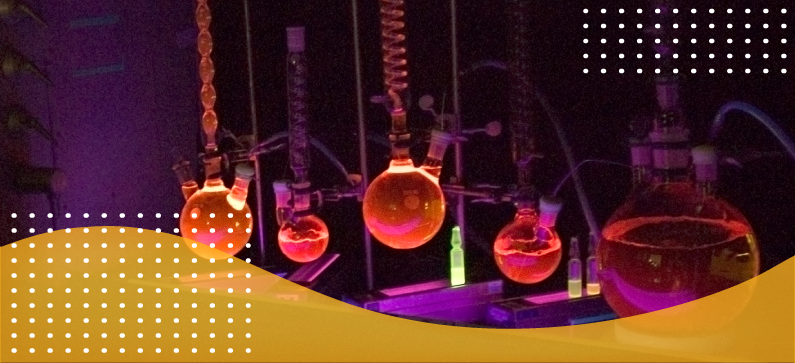The Role of Macrophages in Compensated Cardiac Hypertrophy
Cardiac hypertrophy is the abnormal thickening of the myocardium due to the heart’s inability to regenerate cardiomyocytes. To compensate for the increased stress, existing cardiomyocytes increase in size and although this compensated model is beneficial at first, the heart becomes decompensated over time. Recently, it has been shown that recruited macrophages play an important role in the transition of adaptive remodeling to congestive heart failure and dampening macrophage influx can delay this transition. However, the role of macrophages during the early stages of hypertrophy is still unclear; thus, we administered an 𝜶-CD115 antibody, previously validated by our lab, to deplete macrophages. To mimic compensated hypertrophy and pressure overload, transverse aortic constriction (TAC) surgery was performed. Based on histological analysis, we noticed a significant increase of CD163+ residential macrophages between the isotype sham and TAC hearts. Although we did not detect any difference in cardiomyocyte hypertrophy in the 𝜶-CD115 TAC hearts, we did observe a significantly blunted increase in microvascular density, as well as increased scar formation. This suggests that macrophages are critical for regulating both angiogenesis and preventing fibrosis early after pressure overload. Future studies will focus on differentiating residential versus recruited macrophages in orchestrating angiogenesis and cardiac fibrosis.






